He had been to touch the great death, and found that, after all, it was but the great death. He was a man
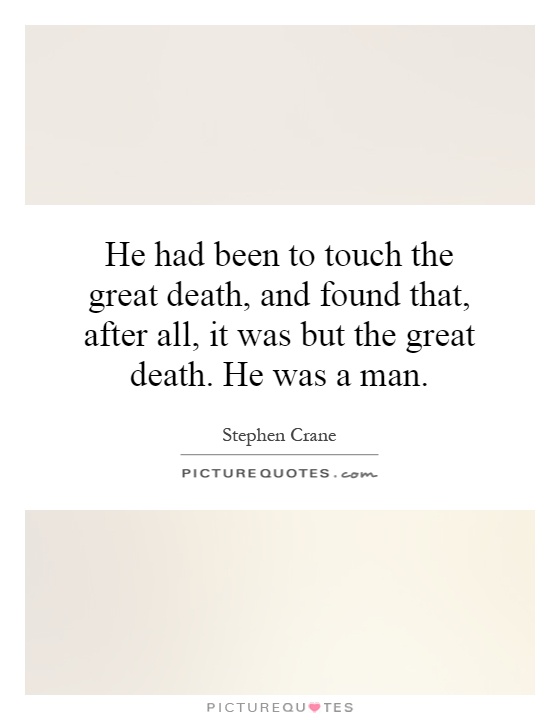
He had been to touch the great death, and found that, after all, it was but the great death. He was a man
Stephen Crane was a writer known for his stark and realistic portrayals of life and death, particularly in his most famous work, "The Red Badge of Courage." In this quote, "He had been to touch the great death, and found that, after all, it was but the great death. He was a man," Crane captures the essence of human mortality and the inevitability of death.Crane's writing often delves into the darker aspects of human existence, exploring themes of fear, courage, and the fragility of life. In this quote, the protagonist has faced death head-on and come to the realization that death is simply a part of life. Despite the fear and uncertainty that death may bring, the protagonist ultimately accepts his mortality and embraces his humanity.
The phrase "He was a man" is particularly poignant in this context, as it speaks to the universal experience of facing death and coming to terms with one's own mortality. Regardless of one's background, beliefs, or circumstances, death is a common experience that all humans must confront at some point in their lives. By acknowledging his humanity in the face of death, the protagonist demonstrates a sense of resilience and acceptance that is both powerful and profound.
Crane's writing often explores the complexities of human nature and the ways in which individuals respond to adversity and hardship. In this quote, the protagonist's encounter with death serves as a catalyst for self-discovery and personal growth. By confronting his own mortality, the protagonist gains a deeper understanding of himself and his place in the world, ultimately coming to terms with the impermanence of life.
Overall, this quote from Stephen Crane encapsulates the universal experience of facing death and the profound impact it can have on an individual's sense of self and identity. Through his powerful and evocative prose, Crane reminds us of the fragility of life and the importance of embracing our humanity in the face of death.
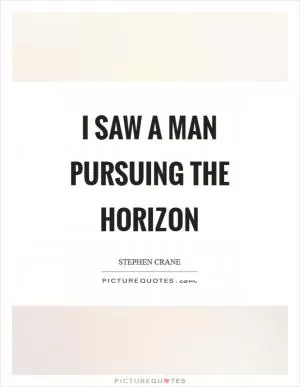
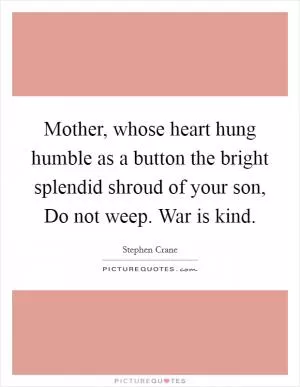
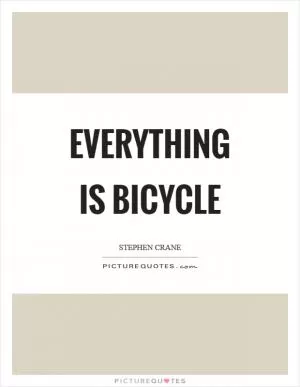
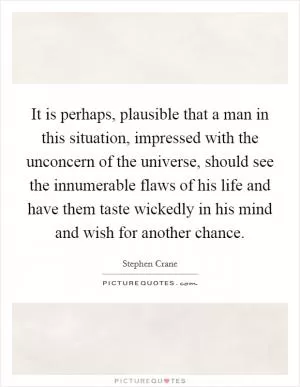
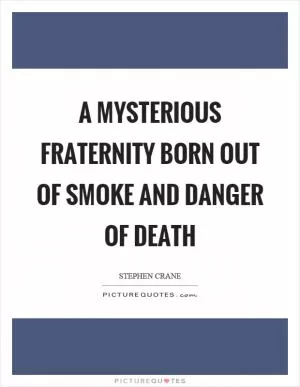
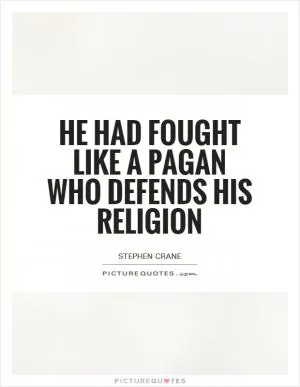

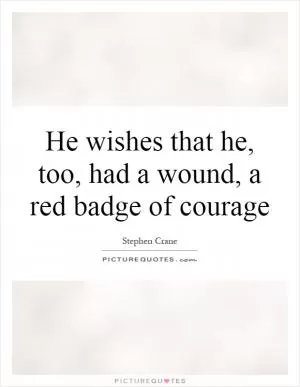
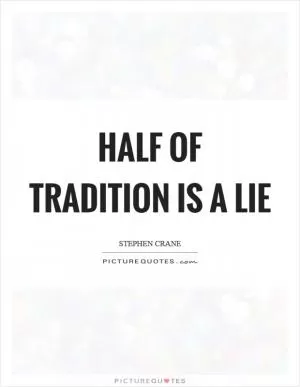
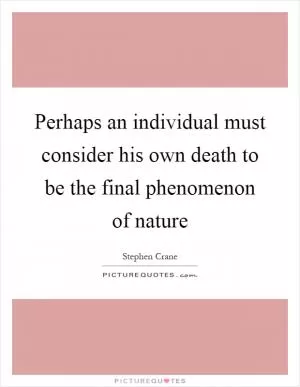
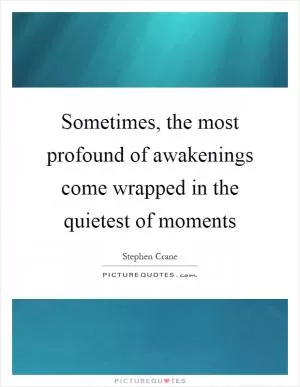

 Friendship Quotes
Friendship Quotes Love Quotes
Love Quotes Life Quotes
Life Quotes Funny Quotes
Funny Quotes Motivational Quotes
Motivational Quotes Inspirational Quotes
Inspirational Quotes